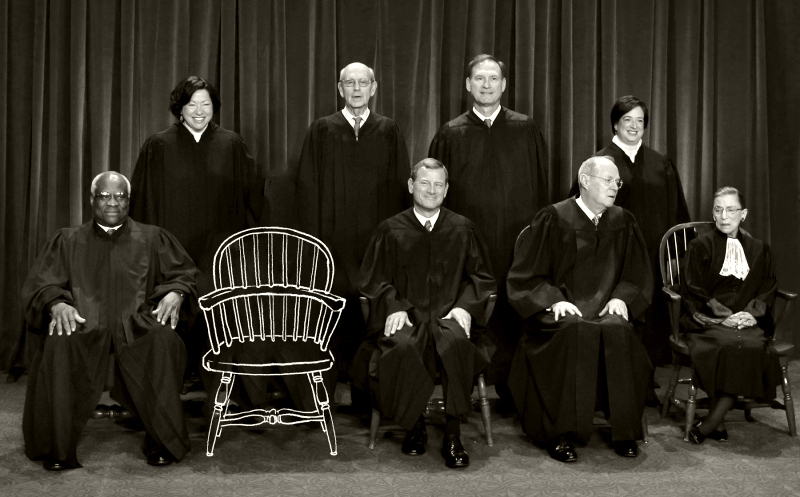Penna Dexter
It’s widely expected that, not long after Inauguration Day, confirmation proceedings will begin to replace Justice Antonin Scalia on the Supreme Court. What is less-discussed, but highly consequential, is that once Donald Trump is sworn in as the new president, he will have 103 judicial vacancies to fill. It’s a pretty big number. To put it in perspective, President Obama had 54 open seats to fill upon entering the White House. (This despite the fact that President Obama has had more judicial nominees confirmed than his predecessor, President Bush.)
The new president and senate are expected to act quickly to fill these openings throughout the federal circuit and district courts. These judges will handle hot-button issues like state gun control laws, abortion restrictions, voter ID laws, laws dealing with immigration, and challenges to religious liberty that have surfaced since the Supreme Court’s decision to approve same sex marriage. This is an opportunity for huge impact, since there are so many openings and these are lifetime appointments.
Why are there so many openings right now? Since the 2015 elections, when Republicans took control of the US Senate, there haven’t been many confirmations of federal judges. Republicans did what opposition parties normally do: They blocked the judicial appointments of the outgoing president.
Currently, the federal courts of appeals and the federal district courts tilt overall in a direction that is hostile to religious liberty. This is a great opportunity for incoming President Trump to correct that by appointing federal judges who will uphold the U.S. Constitution and protect religious freedom.
The question is: Will he?
Carrie Severino, chief counsel and policy director for the Judicial Crisis Network, is optimistic. Mr. Trump, she says, “campaigned really hard on the issue.”
Mr. Trump and Vice President-elect Mike Pence have made the judiciary a priority during the transition period. The Trump team is getting advice on potential nominees from the Federalist Society and the Heritage Foundation. That’s a good sign. But thorough research and constant vigilance are required to take advantage of this great opportunity.
During his campaign for the White House, Donald Trump put out a list of nominees from whom he said he’d choose his nominee to replace Supreme Court Justice Antonin Scalia, who died in February. The list of judges pleased conservatives. Since the election, however, there’s been deeper scrutiny of their records and there are some rulings that concern religious liberty attorneys. Kelly Shackelford, who heads up First Liberty Institute, says there are some names he wishes weren’t on the list and others his team would add.
The Left has increasingly relied on the courts to advance its agenda because legislatures have balked at much of it. Consequently we have a powerful judiciary that has made some rulings that threaten the sanctity of human life and many freedoms. We need judges who will adhere closely to the Constitution in order to right the ship.
 Listen Online
Listen Online Watch Online
Watch Online Find a Station in Your Area
Find a Station in Your Area










 Listen Now
Listen Now Watch Online
Watch Online
